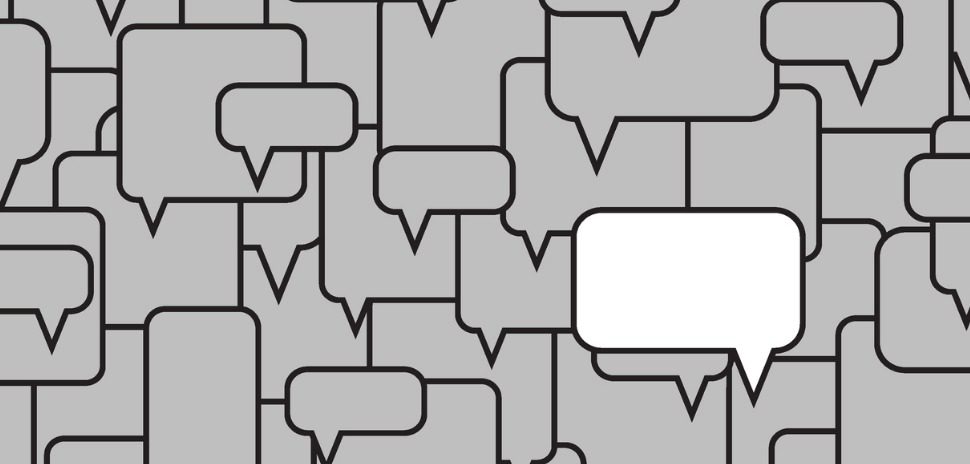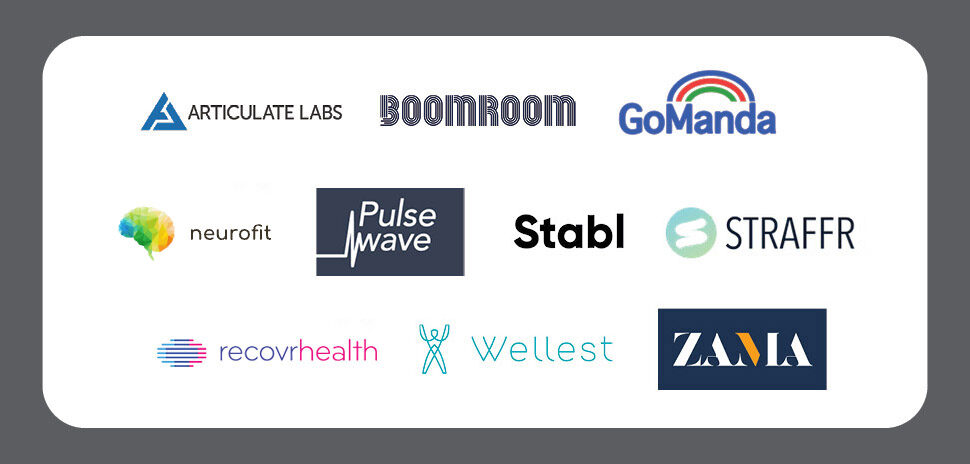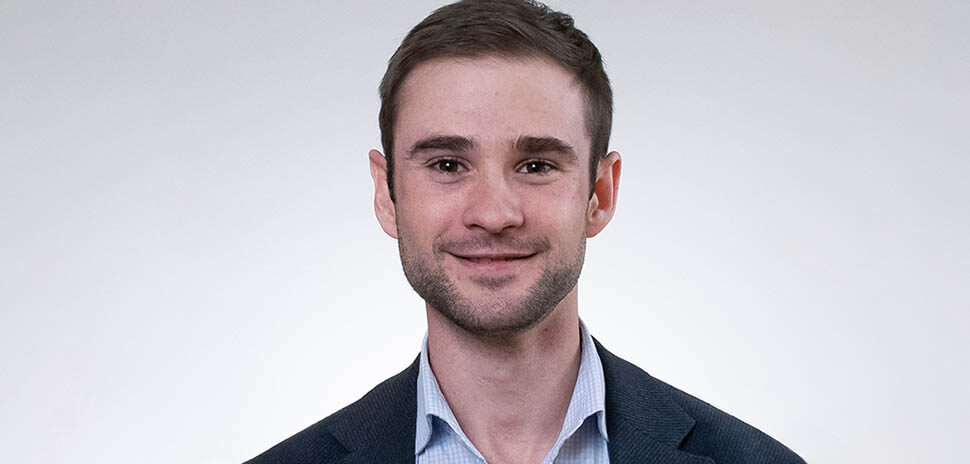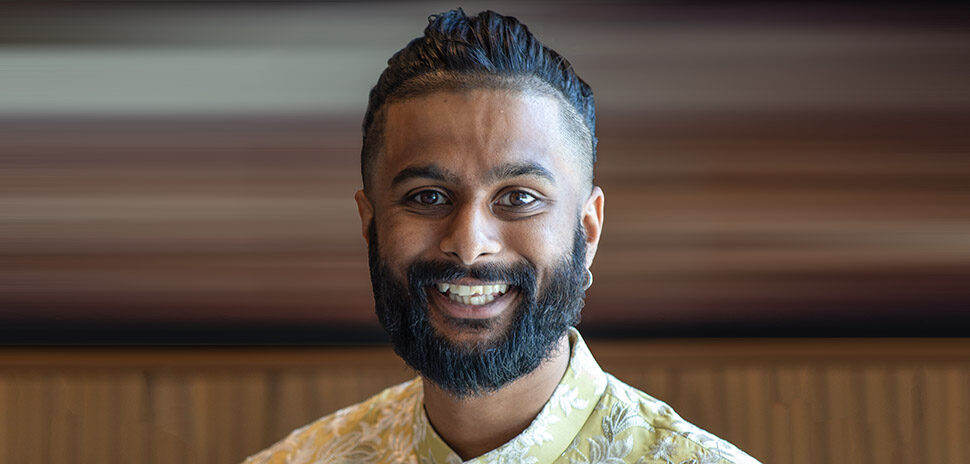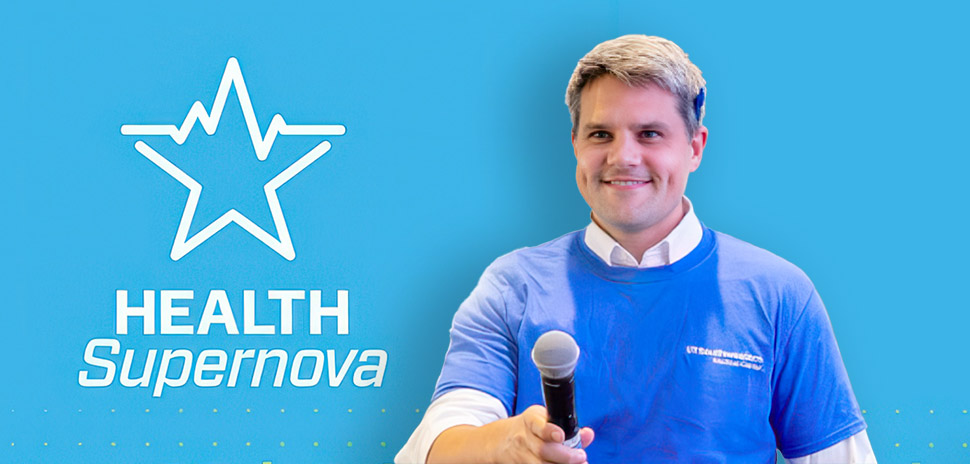
Brad Phelan [Illustration image sources: Ben Porter Photography; Capital Factory]
“We are building it, and they are coming.”
Brad Phelan
Director of Technology Commercialization and Blackstone Launchpad
UT Southwestern
—on the North Texas “biotech-blus” ecosystem, during the Capital Factory Health Supernova event at Pegasus Park on Tuesday.

Brad Phelan knows we’re not in Iowa, and certainly not in a cornfield. And we’re not building a baseball field, either.
“But we are building a biotech plus ecosystem,” he said to a capacity crowd at this week’s Capital Factory Health Supernova event at Pegasus Park.
Like Kevin Costner’s character in the film “Field of Dreams,” we’re hearing a whisper in the fields of healthcare innovation, Phelan says: “If you build it, they will come.” However, instead of an ethereal baseball diamond, we’re witnessing the rise of a biotech revolution in the region.
“We’re building it, and they are coming,” Phelan said: “Entrepreneurs. Investors. Philanthropists. Innovators. Commercialization partners.”
Ours is not just any field, but a fertile ground for ground-breaking ideas that hold the promise of transforming lives. The Health Supernova conference at Dallas’ Pegasus Park gave the stage to innovators in Texas (and beyond) shaking up the status quo in biotech. From neurotechnology to mental health therapies, AI to robotics, the conference highlighted how these fields are intersecting and pushing boundaries.
We took a deep dive into the frontiers of brain-computer interfaces with Paradromics, explored the mind-bending potential of psychedelics as mental health treatments with 2A Biosciences, and got an up-close look at how 3D printing is revolutioning organ transplants with Lazarus 3D. And we saw how Diligent Robotics’ Moxi is reshaping healthcare automation.
Watch for in-depth coverage in the coming weeks, as Dallas Innovates reveals the discussions held by industry stalwarts, leading innovators, and local entrepreneurs who are collectively charting a new course in health technology.
For more of who said what about all things North Texas, check out Every Last Word.

Get on the list.
Dallas Innovates, every day.
Sign up to keep your eye on what’s new and next in Dallas-Fort Worth, every day.
R E A D N E X T
-
Read “who said what” in our roundup of quotes about all things North Texas, including ENO8's Jeff Francis; MyndVR's Chris Brickler and Ted Werth; Axxess' John Olajide; the Urban Land Institute's Ron Pressman; Dallas Mayor Eric Johnson; the Mavs Foundation's Katie Edwards; UT Arlington's Yi Hong; HomeUSA.com's Ben Caballero; ParkHub's George Baker Sr.; and more.
-
Concern has swept the nation since COVID hit about the pandemic's lasting affects on the mental health of children and adolescents. But that mental health crisis has actually been worsening for years, even before the pandemic. The Dallas Morning News' Marin Wolf explores what Children’s Health, UT Southwestern, Cook Children's, and Meadows Mental Health Policy Institute are doing to get ahead of the problem.
-
The inaugural Techstars Physical Health Fort Worth Accelerator is kicking off with 10 startups who come from all over the map—from Dallas to cities across the U.S. as well as Canada, Switzerland, and Germany. They'll be taking up residence in Fort Worth for an "intensive" 13-week mentorship program that makes each eligible for $120,000 in seed funding from the UNT Health Science Center and Goff Capital. “We believe that Fort Worth can become the physical health innovation capital of the world, and this is an incredible next step to making that vision a reality,” says Dr. Sylvia Trent-Adams, president of…
-
Called Radian, the solution is powered by Lightbeam’s health equity AI engine and requires only a ZIP code to aggregate clinical and social data across more than 4,500 factors. It gives providers an executive-level view of health disparities within a community.
-
Dunnu Devulapally has faced his own struggles with identity issues as a first-generation American as well as with substance abuse. Now he aims to help people facing these and other mental health-related issues by launching NRVE, a Dallas-based research nonprofit. Targeting younger generations, NRVE will focus on awareness in youth, support for veterans, support for homeless people, and research for substance abuse, domestic violence, and suicide prevention. With the information it collects, NRVE plans to become the “Google” for the mental health space, Devulapally told Dallas Innovates.
![]()
![]()


